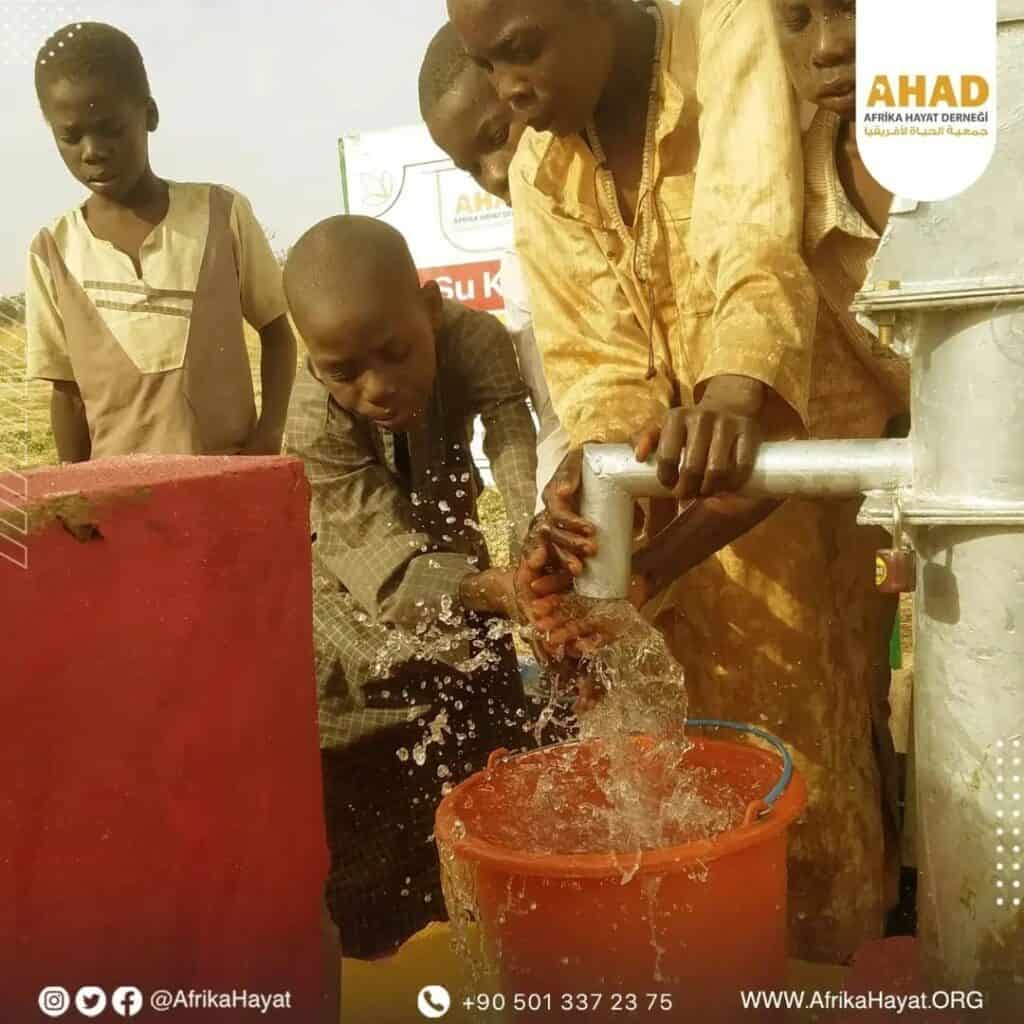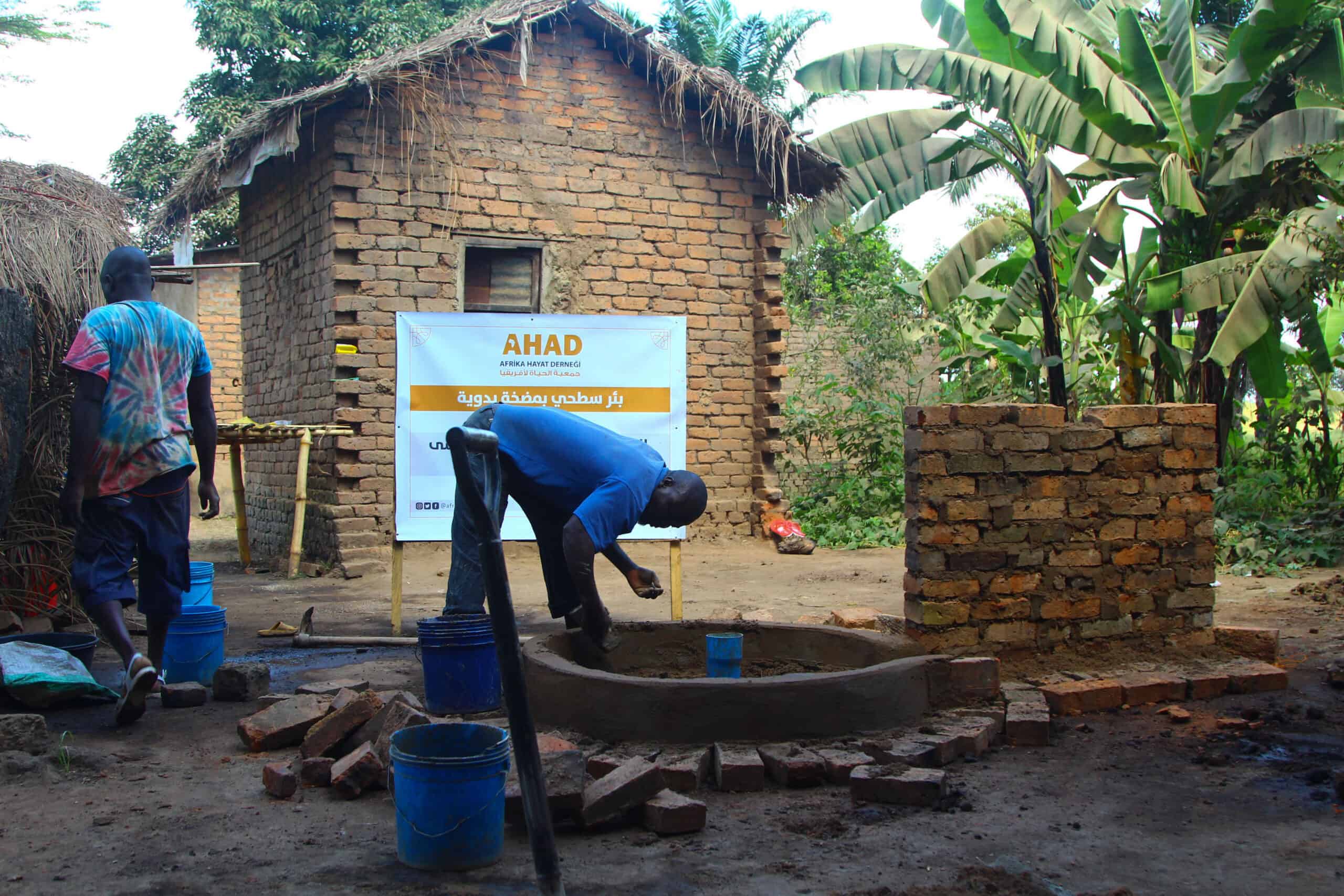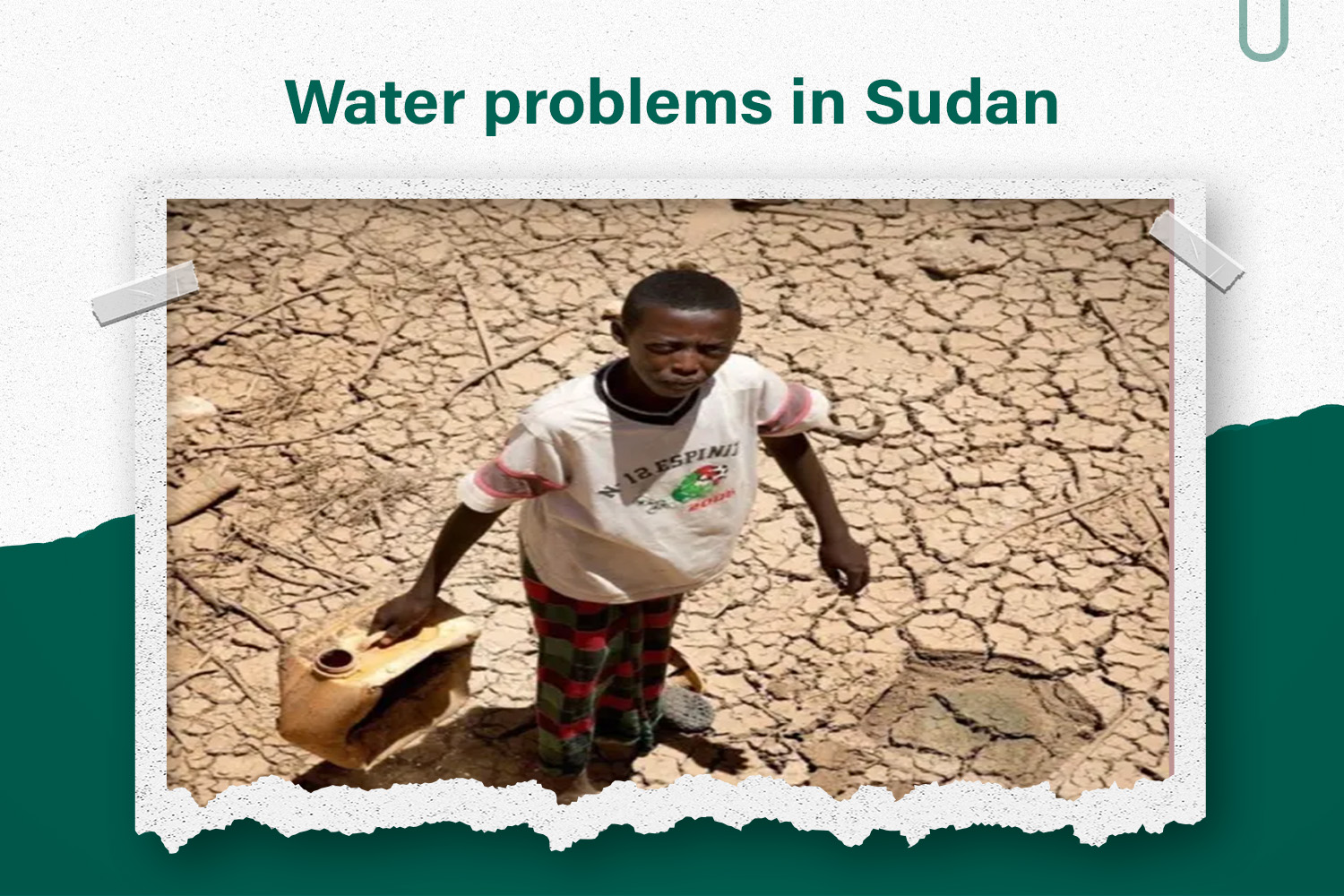Water problems in Sudan is what we have chosen for you from a headline, We will talk in this article about what are the problems facing water
We will also explain the solutions to the problem of water pollution and suggest you some charities that deal with environmental pollution issues in Sudan.
It is also worth mentioning inside the article How can we solve the problem of water pollution Are these solutions considered feasible.
We highlight the civilizations in Sudan and their relationship with water distribution
AHAD takes the phrase” because she deserves life ” as her motto, believes in it and works hard to fulfill its dictates.

Water problems in Sudan
Water problems in Sudan
The water problems in Sudan are large and cannot be limited to planning problems and possibilities, because the projects to work in them are expensive and require huge budgets by the state, in terms of infrastructure, provision of parts, strategic planning, periodic maintenance, chemicals and preventive maintenance.
All this requires the allocation of a large budget to achieve the possibility of reaping a fruitful result in this area and provide the possibility of benefiting from the water wealth.
AHAD exists to influence the life of the communities it serves, to adopt the capabilities of its members to take ownership of their lives, build their capabilities and enable them to participate effectively, especially exercising their natural right to live a decent life.

Important addresses we have selected for you:
1. Water problems in Sudan.
2. What are the problems facing water
3. How can we solve the problem of water pollution
4. Environmental pollution in Sudan
5. Civilizations in Sudan and their relationship to water distribution
What are the problems facing water
We remind you in the content of the paragraph What are the water problems in Sudan, there are many main manifestations of the water crisis, the most important of these problems facing water:
Inadequate access to safe drinking water for 884 million people.
Insufficient access to water used for sanitation for about 2.5 billion people
Depletion of groundwater, which leads to a significant decrease in agricultural yields.
Excessive pollution of Water Resources and damage to biodiversity.
AHAD also helps the poor through water projects, which is carried out through its charitable program to support the poor in Africa and other projects that you also find concerned with finding solutions to water problems in Sudan within the main site of the association.

How can we solve the problem of water pollution
To find out how we can solve the problem of water pollution Whether in African cities, including Sudan in particular, or in any part of the world, a set of measures can be taken that facilitate the way to the problem of water pollution, namely:
To address water pollution, we offer you some solutions to the problem of water pollution with how to apply them, the following table shows ways to solve water problems in Sudan
| Burying waste and industrial waste away from groundwater in countries. |
| The use of anti-pollution devices in modern and new factories is one of the solutions to water pollution. |
| The construction of water treatment and purification plants is one of the solutions to the problems. |
| Non-discharge of sewage to water bodies, which leads to pollution of sea and river water, and work to treat it before it reaches various water bodies, and reuse it for irrigation of soils and plantations. |
| Not dumping dirt and waste into water bodies is one of the solutions to the problem. |
| Reduce the use of pesticides that are harmful to the environment, and also cause soil pollution. |
Environmental pollution in Sudan
We stand with you in this paragraph on our main topic water problems in Sudan, where environmental pollution is caused primarily by the introduction of some foreign substances into it, and this pollution causes risks to human health that may extend for long periods of time.
The emergence of many diseases, such as cancers of various kinds, is due to the causes of air, soil or water pollution, and as a result, human health is at risk of developing chronic diseases.
What are the consequences of environmental pollution in Sudan
The increase in harmful ultraviolet radiation as a result of increased environmental and thermal pollution leading to perforation of the weight layer; which affects the skin and eyes directly.
The mother is exposed to the radiation effect produced by factories, nuclear reactors and power plants, which distorts the fetus.
Soil pollution leads to the death of animals and vegetation.
Civilizations in Sudan and their relationship to water distribution
It is worth mentioning in our article the civilizations in Sudan, their relationship with the distribution of water and who the ancient civilizations are.

What are the ancient civilizations of Sudan
Three Christian kingdoms were established in Sudan (the kingdom of nobatia, Al-maqara and Alula), and this was starting from the middle of the sixth century AD and most of their powers were concentrated on the Nile strip.
These civilizations spread from the far north of Sudan to south-central Sudan with extensions in the eastern and western regions of Sudan.
These civilizations are distributed on a limited Strip and the commitment of population colonies near these water basins for the greed of abundant goodness, which led to the neglect of the rest of the areas in general and exacerbated water problems in Sudan.
One of the ancient civilizations in which major cities arose on the banks of the Nile River inside Sudan:
Pharaonic civilization “civilization of the Nile Valley”
The civilization of Mesopotamia.
The Indus Valley Civilization.
Chinese civilization.
Related titles
Water problems in Sudan.
What are the problems facing water
How can we solve the problem of water pollution
Environmental pollution in Sudan
Civilizations in Sudan and their relationship to water distribution.
Frequently asked questions
1. What are the causes of the water problem
High demand as a result of population growth.
Market-driven agricultural development
Loss of control over groundwater extraction processes and exposure of some basins to pollution.
The policy of promoting agricultural expansion, omission of competent use and management of the resource.
2. What are the causes of water pollution
The sources of water pollution vary, including: naturally produced sources of waste from living organisms, including those caused by some human activities, which is the most widespread, such as: sewage, agricultural fertilizers, pesticides, food processing waste, heavy metals such as lead, mercury, chemical waste, factory waste, and others, and water reaches.
3. What is the oldest civilization in the world
Historians have differed in determining the oldest civilization on Earth, but the majority recently met on the oldest civilization in the world, the Mesopotamian civilization, the Sumerian civilization, known about that civilization by finding fragments of clay tablets written in cuneiform writing.




